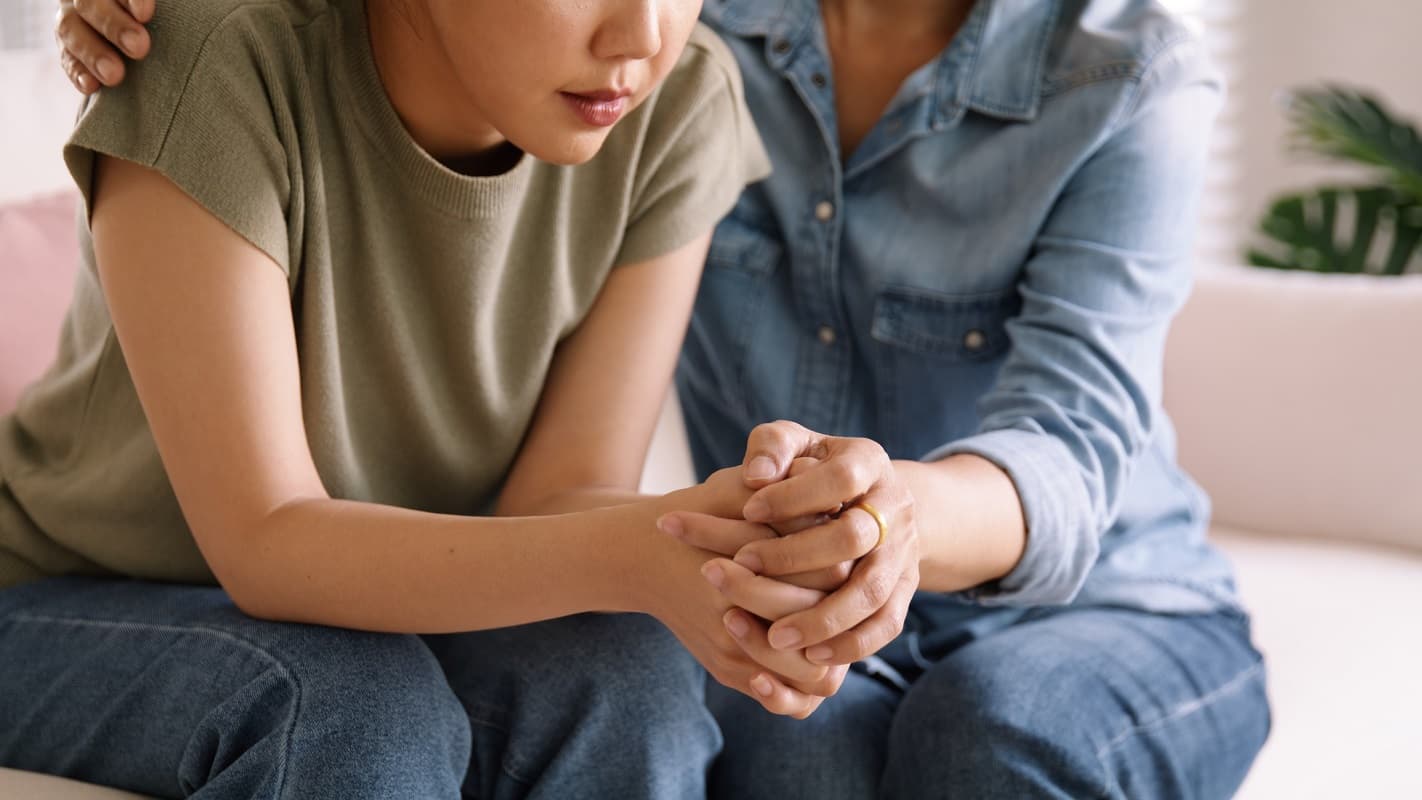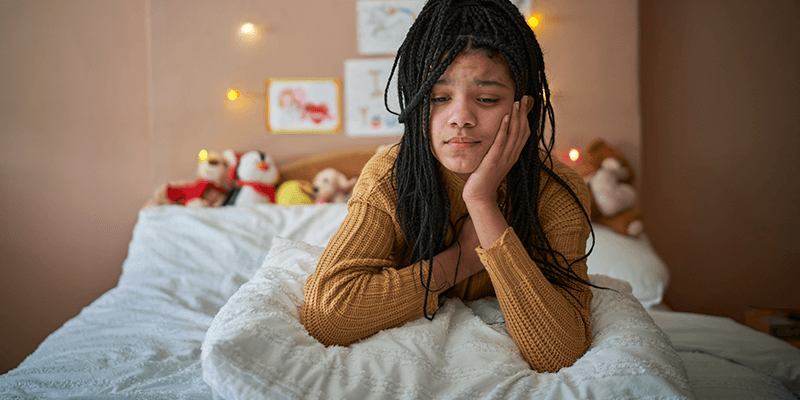It’s a difficult balancing act between keeping teens safe and not making them feel scared or ashamed about sex and relationships. Sex is an important and enjoyable part of life. Finding the line between safety and promoting a positive attitude to it is not easy.
Thinking about your teen exploring their sexuality and having sex might make you very uncomfortable. You’ll not be the only parent who feels that way! But it’s natural for young people to be curious about sex, to start exploring their bodies, and their sexuality. Sometimes it can be hard to tell what’s ‘normal’ and what’s not. This makes it difficult to know when to be concerned about what they ‘re doing.
How parents can teens as they grow up
In this film, Stuart Allardyce, Director of Stop It Now! Scotland, explains what’s normal sexual behaviour for teenagers and how parents can support their development. You can find out more about Stop It Now and Children First on their websites, or call Stop It Now! on 0808 1000 900 or Children First's support line on 08000 28 22 33.
What is healthy sexual behaviour?
All children grow up at their own speed. Different children will become interested in sex and relationships at different ages. Broadly speaking, younger children will be curious about what sex is and keen to separate truth from fiction, while teenagers will begin to express their sexuality. These are normal and healthy stages for children and young people to go through.
As they get older they may enter into relationships. Some fleeting and some serious. This is also perfectly normal. And in some of these relationships they’ll start taking part in sex and sexual activity. All young people mature at different rates, so it can be hard to know when it’s ‘too soon’ for them to be taking part in sexual activity.
As a guide, it’s important to think about the law. The age of consent for having sex in Scotland is 16. The law is there to protect young people from abuse, and to discourage them from having sex too early.
What to do if you think your teen is taking part in sexual activity
The most important thing you can do is to keep talking to your teen as openly as you can. Let them know that sex is nothing to be ashamed about and that they can always talk to you.
Keeping these lines of communication open means they’re much more likely to keep you in the loop about what’s going on in their life. This will make it easier for you to tell if anything is up. And it will lay the groundwork for them to grow up with a positive and healthy attitude to sex. We have more information on talking to them about sex to make it easier for them and you.
Try not to worry too much if this activity is:
- within the law (our page on harmful sexual behaviour has more information on sex and the law)
- with someone of a similar age
- fully voluntary
- with someone they trust and feel safe and comfortable with
- something they are happy to do and are not in any way being pressured into
- not negatively affecting their mood or behaviour.
While normal sexual behaviour is a part of growing up, harmful sexual behaviour is not. Knowing when sexual activity becomes harmful can be difficult for parents. We have more information on what harmful sexual behaviour is, with information on what to look out for and what to do if you’re worried.
You can find out more about what’s normal teen sexual behaviour and what’s not on the Stop It Now! website.
Healthy behaviour online
Much of young people’s lives happen online and their sex lives are no different. This is just part of the modern world, but it can make it harder for us parents to keep track of what they’re up to and what they’re exposed to. From seeing pornography, to getting unwanted sexual messages, or being pressured to send nudes, there are real dangers, and sadly for many girls online harassment happens far too frequently.
However, as with other sexual behaviour, online sexual behaviour isn’t necessarily harmful. Sharing sexual messages and images with a boyfriend or girlfriend (sometimes called ‘sexting’) is normal and not something to be unduly worried about as long as it is consensual and enjoyable.
As with anything, speaking to your teen is crucial:
- Remind them that once they send an image to someone else, they can’t control how it’s then used.
- Help them understand the unreasonable expectations and harmful impressions that seeing porn online and unrealistic images on social media can cause.
Our pages on sharing nudes and talking to your teen about sex have more advice around sending nude or sexual images and videos and talking about porn.
It’s also important to talk to them about what to do if they receive unwanted sexual contact online. Let them know that if they do, it isn’t their fault, they can always come to you about it, and you can help them take steps to stop it happening, for example, by blocking or reporting the person. You can find out more about what to do if someone shares an intimate picture of your teen without their permission on the MyGov.scot website. If your teen is 18 or over they or you can also contact the Revenge Porn Helpline.
We have more information about online safety to help you as well as more information on consent, which is just as important online as elsewhere.
What to do if you’re worried
If you’re worried about your teen’s sexual behaviour or not sure if what they are doing is appropriate for their age then it’s a good idea to talk to someone. You can call the Stop it Now! helpline for more advice if you’re worried about harmful sexual behaviour. And visit our page on harmful sexual behaviour to find out more.
 Activities & Play
Activities & Play Behaviour
Behaviour Childcare
Childcare Development & Growing Up
Development & Growing Up Family, Friends & Relationships
Family, Friends & Relationships Feeding Your Baby
Feeding Your Baby Food & Eating
Food & Eating Health & Safety
Health & Safety Mental Health & Wellbeing
Mental Health & Wellbeing Money & Work
Money & Work Online Behaviour & Safety
Online Behaviour & Safety Pregnancy & First Days
Pregnancy & First Days School & Education
School & Education Sleep
Sleep










 Mental Health & Wellbeing
Mental Health & Wellbeing
 School & Education
School & Education